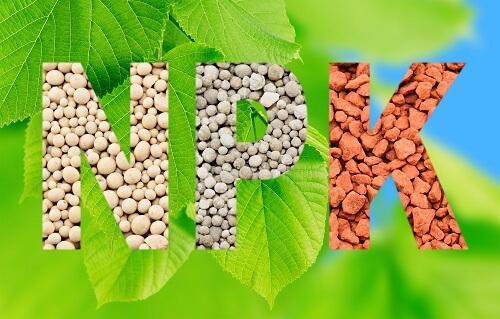15-15-15 fertilizer is an excellent choice for sod lawns in Arizona. You'll want to follow best practices to achieve optimal results. First, let's get into the basics of this fertilizer. Then we will go over tips on how to apply it to your lawn for the best results.

All fertilizers are defined by a set of three numbers with hyphens. This describes the ratio of nitrogen, phosphorous, and potassium, also known as the NPK ratio. 15-15-15 fertilizer is a fertilizer that contains equal parts of each element. The easiest way to think of fertilizer is this; fertilizer is plant food.
15-15-15 is the best option when you're installing new sod in Arizona because the soil in Arizona naturally has little to no phosphorous content.
Any sod variety that you choose for your lawn will work well with 15-15-15 fertilizer. It is the best option for new sod that isn't yet established and hasn't yet taken root. The equal amounts of NPK helps your lawn to take root, grow strong and stay healthy.
Established lawns, on the other hand, require different ratios of NPK. Why? Because as the sod matures, the nitrogen levels in the soil change. As a result, you will need to apply a different ratio of NPK to the soil. This will help to produce lush and healthy lawns.
Midiron, Tifway, and Tifgreen sod varieties, which are often used on home lawns in Arizona, tend to be higher in nitrogen. They also have a medium phosphorous content, and have a medium-to-high amount of potassium. For these types of grasses, a 3-1-1 fertilizer, fed every four to six weeks, is generally optimal for established lawns.
Certain types of sod don't require as much nitrogen. St. Augustine sod, for example, shouldn't be given too much nitrogen during the fertilization process. This is because too much nitrogen will make St. Augustine grow very thick. When that happens, thatch builds up. Thatch is "a layer of organic matter that accumulates on a lawn around the base of the grass plants. Thatch is a combination of living and dead plant matter including crowns, stolons, rhizomes, and roots." (Source: Wikipedia). St. Augustine sod can be prone to disease if it accumulates too much thatch. Once this grass is established, a 1-1-1 or 1-2-2 ratio is recommended. These fertilizers will give your grass plenty of color without a lot of growth.
More is not always better. Keep in mind that the Arizona climate can sometimes result in your grass being burnt if you're not careful. Too much fertilizer, or fertilizer with a high nitrogen content, can result in scorching or blemishing your lawn. This can be expensive to repair. Salt is often in fertilizers too. Salt can contribute to burning your lawn once the sun and heat go to work, if you're not applying the proper amount of fertilizer.
It's also very important to be mindful of the way in which you're spreading your fertilizer. It is incredibly essential that you spread your fertilizer evenly throughout your lawn. Uneven distribution can cause patches of green and yellow on your lawn. As a final tip, be sure to water your lawn regularly for best results.
To summarize, here are some of the top benefits of 15-15-15 fertilizer:
Now hopefully you have a better understanding of fertilizer and how it can help your lawn. For more, check out the article about the numbers on fertilizer labels on Growing a Greener World: The Numbers on Fertilizer Labels, What They Mean.
Need help understanding how to best care for your sod in Arizona? Our team at Evergreen Turf would be happy to help! Contact us today, so we can get started! Ready to order some sod? Check out all of our sod varieties here
Enter your email address below and we'll remind you when it's time to reseed & change your irrigation schedule. You can remove yourself from our list at any time.
For questions or to order by phone call:
(480) 456-1199